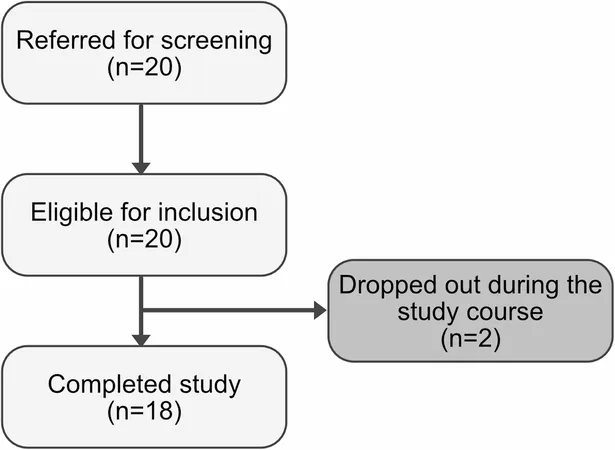
Breakthrough in Evolution Research: Scientists Uncover Predictability in Evolutionary Processes!
2024-11-02
Author: Arjun
Breakthrough in Evolution Research: Scientists Uncover Predictability in Evolutionary Processes!
A groundbreaking study led by the dynamic duo, Professor James McInerney and Dr. Alan Beavan, from the School of Life Sciences at the University of Nottingham, is shaking up our understanding of evolution. Traditionally regarded as a haphazard journey shaped by random events, new evidence suggests that evolution may, in fact, follow certain predictable paths.
This thought-provoking research has the potential to revolutionize our approach to critical issues such as antibiotic resistance, disease management, and climate change.
What Lies Beneath the Surface? The Pangenome Explored
At the heart of this study is the concept of the pangenome—the entire set of genes within a species, encompassing both the core genome (common genes) and the accessory genome (unique genes). By delving deep into these genetic blueprints, scientists aim to discern whether evolution is merely a series of accidents or influenced by historical genetic patterns.
This exploration of the pangenome reveals significant insights into survival-essential genes and those that confer specific advantages. This kind of understanding can pave the way for innovative medical and environmental advancements.
Harnessing Technology: Machine Learning Meets Genomics
To analyze a colossal dataset of 2,500 complete genomes from a single bacterial species, the team leveraged cutting-edge machine learning techniques. A method known as Random Forest enabled them to detect patterns that might escape even the most trained human eye, requiring hundreds of thousands of hours of computational power to sift through.
By creating "gene families" from the genetic information, the researchers could make direct comparisons across the genomes. This meticulous sorting unveiled fascinating relationships between genes, indicating a hidden ecosystem where interactions dictate evolutionary outcomes.
A Paradigm Shift in Our Understanding of Evolution
Professor McInerney heralds this research as a major stepping stone, stating, "The implications of this research are nothing short of revolutionary." This study not only challenges the randomness associated with evolution but opens a new realm of possibilities in fields such as synthetic biology, medicine, and environmental science.
Practical Applications: From Medicine to Climate Solutions
But how does this affect the real world? One tantalizing prospect is the battle against antibiotic resistance. By identifying not only harmful genes but also their supporting counterparts, scientists may develop more targeted treatment strategies. This could substantially enhance our arsenal in the fight against resistant bacterial strains.
Moreover, the implications extend to combating climate change. Genetically engineered microorganisms with the capability to capture carbon or decompose pollutants could transform our environmental strategies, providing new tools to reduce the ecological footprint.
Equally exciting is the potential for advancements in personalized medicine. With a clearer understanding of gene interactions, the medical community might soon be able to tailor treatments based on individuals’ unique genetic profiles, predicting disease progression and treatment responses with unprecedented accuracy.
Rethinking Evolution: A Structured Approach to Change
In summary, this new research encourages a major rethink of evolution. No longer seen purely as a series of chance events, it hints at a more structured and predictable process shaped by genetic history and interactions.
The possibilities are immense—from crafting new therapies to innovative environmental solutions. As we navigate these discoveries, we stand on the brink of a new era in evolutionary science that promises to enhance our understanding of life itself.
In a world where science and technology collide, it’s an exhilarating time to forge ahead. Stay tuned for further developments, because this is only the beginning of a revolutionary journey in understanding evolution!






 Brasil (PT)
Brasil (PT)
 Canada (EN)
Canada (EN)
 Chile (ES)
Chile (ES)
 Česko (CS)
Česko (CS)
 대한민국 (KO)
대한민국 (KO)
 España (ES)
España (ES)
 France (FR)
France (FR)
 Hong Kong (EN)
Hong Kong (EN)
 Italia (IT)
Italia (IT)
 日本 (JA)
日本 (JA)
 Magyarország (HU)
Magyarország (HU)
 Norge (NO)
Norge (NO)
 Polska (PL)
Polska (PL)
 Schweiz (DE)
Schweiz (DE)
 Singapore (EN)
Singapore (EN)
 Sverige (SV)
Sverige (SV)
 Suomi (FI)
Suomi (FI)
 Türkiye (TR)
Türkiye (TR)
 الإمارات العربية المتحدة (AR)
الإمارات العربية المتحدة (AR)